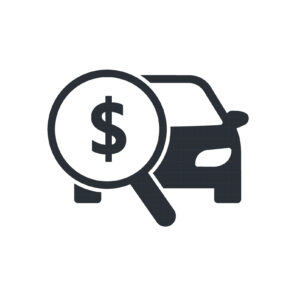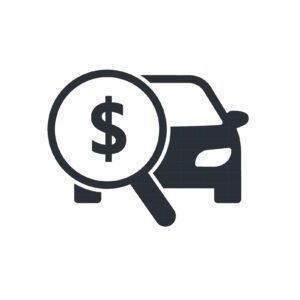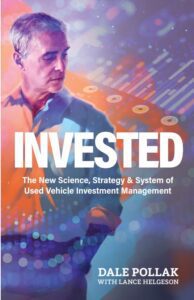I’ve had a version of the following conversation with dealers in recent weeks. The conversation typically arrives after I’ve shared why dealers should be treating their distressed (or “Bronze”) vehicles differently and getting out of them faster. It goes like this:
Dealer: “Wait a minute. You’re telling me that I need to lower  the price on my Bronze vehicles because I own them for too much money?”
the price on my Bronze vehicles because I own them for too much money?”
Me: “That’s exactly right. You’ve had the cars for too long. You’re in them for too much. They’re depreciating. You need to move them.”
Dealer: “But you’ve been telling me to ignore my cost and Cost to Market when I price used cars for years!”
Me: “That’s true. But what makes you think that your Cost to Market on these Bronze vehicles means you need to price them cheap?”
Dealer: “That’s what you just told me. The cars are Bronze because of my Cost to Market, right? And isn’t that what you do with Bronze vehicles…you price them cheap?”
Me: “Ahhhh. I see. I’m sorry. Let’s step back so I can help you understand how ProfitTime GPS uses Cost to Market and why it doesn’t drive the system’s price recommendations.”
The frequency of this conversation suggests a need to address a growing false assumption, misconception or over-simplification about the way data science works in ProfitTime GPS, and how a vehicle’s Cost to Market influences its investment value but matters far less, if at all, when it comes to the system’s individualized, car-by-car pricing recommendations.
How Cost to Market Influences Investment Value
In ProfitTime GPS, a vehicle’s Cost to Market serves as one of three primary data points that the system distills, weigh and uses to determine a vehicle’s Platinum, Gold, Silver or Bronze investment value. The other data points are the vehicle’s like-mine Market Days Supply and its retail sales volume. The individual weight the system gives to each of these variables, as well as other market factors, differs by car. The end result is an individualized, unique investment value for every vehicle, attuned to the circumstances of each car.
As such, each vehicle’s Platinum, Gold, Silver or Bronze investment value serves as a signal of the opportunity and/or risk each vehicle offers as a retail unit. The investment value indicates how you should treat the vehicle to minimize its risk or optimize its opportunity. The investment value gives you a way to see, across your inventory, from the moment you acquire a vehicle, whether a vehicle should move fast, move slow, or land somewhere in between. In other words, the investment value signals the “turn policy” you should establish for each car, and it helps you establish broader turn policy targets for each investment class (Example: Platinum (50 days), Gold (40 days), Silver (30 days) and Bronze (20 days.)
But it should be understood that the Platinum, Gold, Silver and Bronze designations, in and of themselves, have little direct bearing on the actual retail prices ProfitTime GPS recommends for individual vehicles. The investment value designations, and associated metrics like Cost to Market, are connected to price recommendations but they do not directly influence them in the way dealers think they do.
Instead, the recommendations come from a different set of data, and data science, that’s built into ProfitTime GPS’ pricing recommendation algorithm. Let’s have a look.
Factors Behind ProfitTime GPS Price Recommendations
Prior to the launch of ProfitTime GPS, data scientists at Cox Automotive and vAuto spent significant time trying to understand all of the factors that indicate a vehicle’s probability of selling within seven days, at any price. This work led to an algorithm that blends and measures all of the factors for each individual vehicle.
Broadly speaking, the factors that drive the ProfitTime GPS price recommendations are drawn from three buckets—everything the system knows about the car, everything it knows about the market for the car and everything it knows about a dealer’s past experience selling the car. With this information, the algorithm distills and weighs the factors most relevant for an individual car and produces a price recommendation.
As a result, the system doesn’t recommend that dealers price every Bronze car to be the cheapest, or lowest in the competitive set, to sell fast. Rather, each Bronze car’s price recommendations reflect the optimal market position for the vehicle and its unique circumstances. Hence, some price recommendations for Bronze cars are higher than others; the degree of difference depends on the car, the market and how the dealer’s likely to sell it, based on past experience.
The same is true for Platinum cars—the ProfitTime GPS price recommendations don’t put every Platinum car at the top of a competitive set. Some Platinum cars need to be priced more competitively because of their unique circumstances.
Is it fair to say Cost to Market has absolutely no bearing on ProfitTime GPS price recommendations? No. That’s because a vehicle’s Cost to Market percentage influences its investment potential, and the price recommendations in ProfitTime GPS have been built to help dealers execute a Variable Management strategy that moves vehicles in accord with their individual investment values, accounting for the opportunity and risk each vehicle represents.
In the end, it is fair to say this: While there’s a relationship between a vehicle’s Cost to Market percentage and the price recommendations ProfitTime GPS provides, it isn’t a direct connection.
The post ProfitTime GPS in Practice: How and Why “Cost” Doesn’t Drive Pricing Recommendations appeared first on Dale Pollak.





